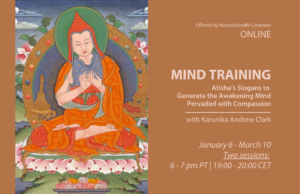Once when I was a child, I sat on the doorstep of my house, staring at the sky, contemplating the clouds and the vastness of the deep blue on an autumn morning. A lady passed by and asked curiously what I was so deeply thinking about. And I said, “The universe.”
I found myself pondering the universe, including whether it was finite or infinite—and what came after? What if the universe were in the shape of a sphere, and there was another sphere encompassing it? What if all of this was my dream or someone else’s dream, and none of it was real?
I still don’t have a final answer, but the etymology of the word “universe” is a good place to start. It comes from the Latin “universum,” where “uni” means one, the whole, and “versus”—the past participle of “vertere”—can be translated as “something changed.” Another interpretation of “universum” is “everything spinning as one.” So we can say that we are the universe, connected to all things and spinning as one.
We search for meaning, always aspiring for something more. We collect objects, relationships, experiences, and we believe that our happiness lies in those things. It’s madness. It is inevitable that at some point, we will lose our job, fall ill, or break up with our spouse—and everything crumbles.
So, what should we do in this crazy dream called life until we wake up?
I found in Buddhism some understanding of how to live better. I learned that we suffer daily through the three poisons: anger, ignorance or muddled thoughts, and desire. If we let these three emotions control us daily, it is a path to disaster. We cannot let ourselves be enslaved by emotions, which only bring suffering,
It may seem impossible to live without being carried away by emotions, but we can respond differently. We can let emotions be part of our life, but not be controlled by them. And we must control our negative actions in response to those emotions. This will benefit ourselves and everyone around us.
From the simplest being to the most powerful person, we all want happiness and to eliminate the causes of suffering. It is possible to live in a lighter way, with less attachment to things and people. We can evolve from being ruled by desire to a life of wisdom, generosity, and loving-kindness, spinning as one with the universe.
Contemplation
- Think about a time when you had a strong emotional reaction to a loss or disappointment. Was your response useful? Were others harmed or helped by your reaction?
- Imagine the same circumstance, but this time think about how you could respond differently. Feel the emotion but don’t be consumed by it. Let go and relax.

Sebastião Miranda began his Buddhist practice through a study group on Tibetan Mahayana Buddhism. He had his first contact with the teachings of Dzogchen Ponlop Rinpoche when Rinpoche visited Brazil in 2019. Since then, Sebá has been a member of Nalandabodhi Brazil. He is a consultant in energy efficiency projects; lives with his wife and their five dogs in the countryside of Brazil on a little farm; and is devoted to dharma.






